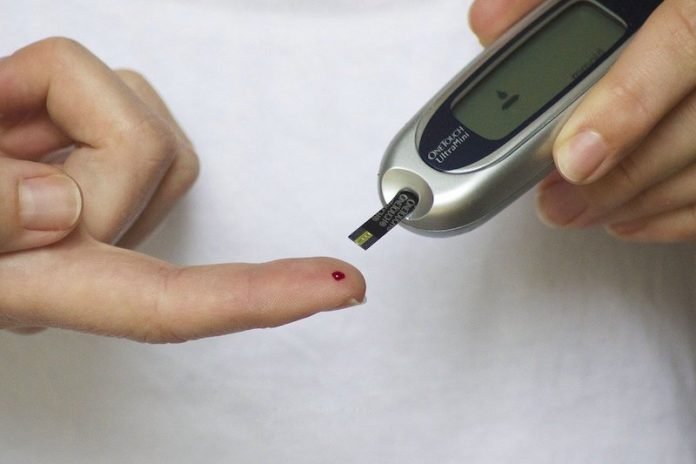
In a recent study at The Chinese University of Hong Kong, researchers reviewed the evidence on the devastating impact COVID-19 is having on people with diabetes.
The study was presented at the online Annual Meeting of the European Association for the Study of Diabetes. One author is Prof. Juliana Chan.
Major risk factors for COVID-19 mortality include advanced age and chronic conditions, notably obesity, diabetes, high blood pressure, heart and kidney disease as well as social deprivation, minority ethnic groups, and those with poor access to care.
These frequent coexisting conditions highlight the complexity of COVID-19.
A previous report in a UK population-based survey of over 60 million people found that 0.4% had type 1 diabetes and 4.6% had type 2 diabetes.
Yet amongst the more than 24,000 deaths due to COVID-19, 30% occurred in people with diabetes.
Researchers found people with type 1 diabetes had an almost 3 times risk of death, and those with type 2 diabetes, and almost 2 times higher risk of death due to COVID-19 versus those without diabetes.
Despite the short duration of the pandemic, still less than one year, a search term of ‘COVID-19 and diabetes’ yielded over 1800 publications in PubMed.
Many of these reports showed close relationships between high blood glucose levels and poor outcomes including mechanical ventilation, admissions to the intensive care unit, and death in patients with COVID-19.
According to the team, glucose is fuel and its effective use depends on adequate oxygen supply and insulin action to promote glucose entry into the cells to maintain bodily functions and survival.
Diabetes is due to absolute or relative insulin insufficiency. People with poorly controlled diabetes have low-grade inflammation, poor circulation, and body defenses.
During acute stress such as COVID-19, these interlinking systems can destabilize resulting in uncontrolled blood glucose and multi-organ failure.
In a recent consensus statement, international experts call for optimization of outpatient and in-patient care including appropriate use of insulin to control blood glucose and the use of organ-protective drugs to improve the outcomes of these high-risk patients.
The team says SARS-CoV-2 may damage pancreatic beta-cells, the only insulin-secreting cells.
As such, COVID-19 may precipitate diabetes in people with risk factors such as obesity, low socioeconomic status, and psychosocial stress.
The use of social distancing and restricted traveling have controlled the outbreak to some extent but also resulted in economic hardships and emotional distress.
These can have effects on personal health, societal productivity, and access to routine care.
The team says diabetes and COVD-19 are silent epidemics with devastating consequences, if not diagnosed or controlled.
Copyright © 2020 Knowridge Science Report. All rights reserved.



